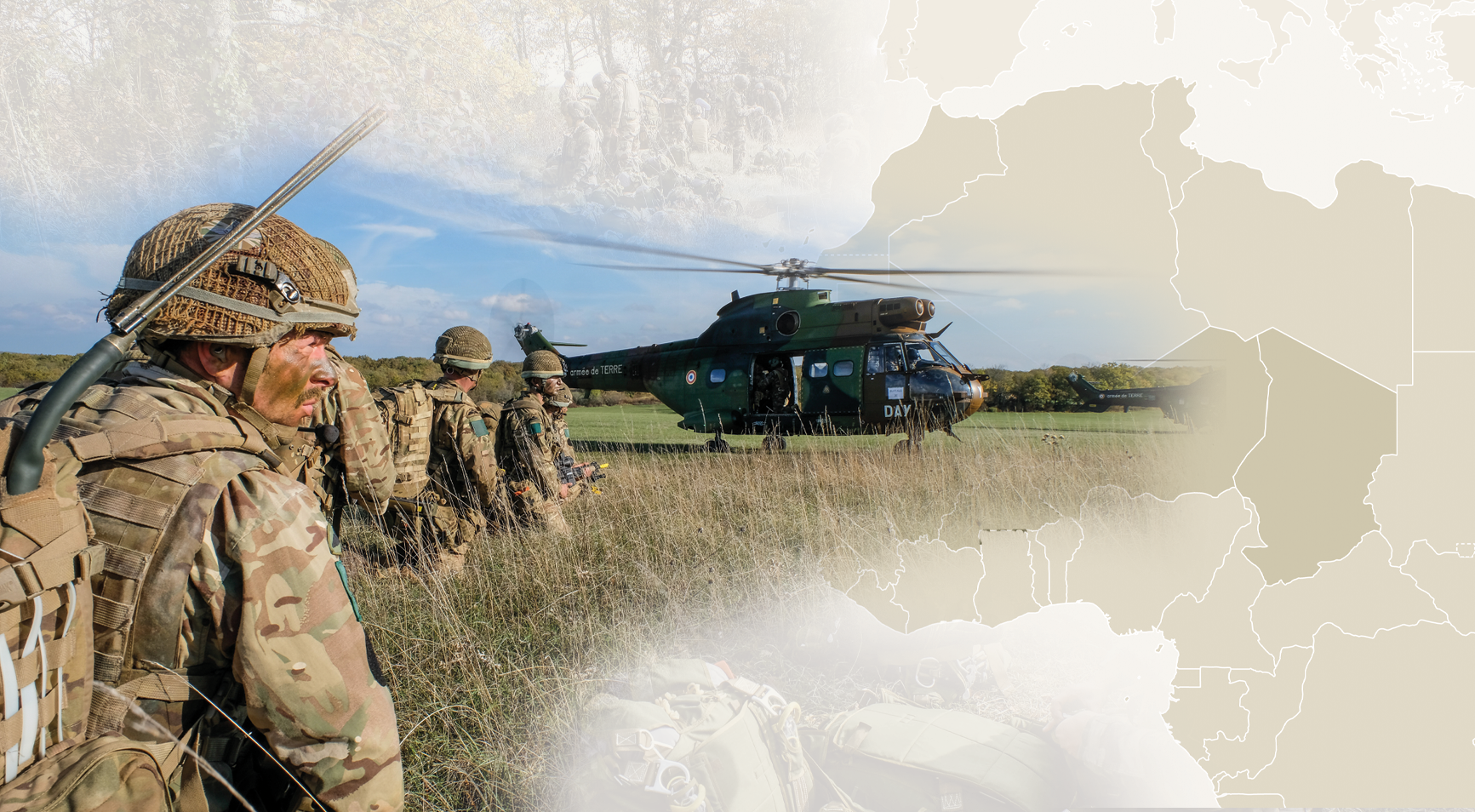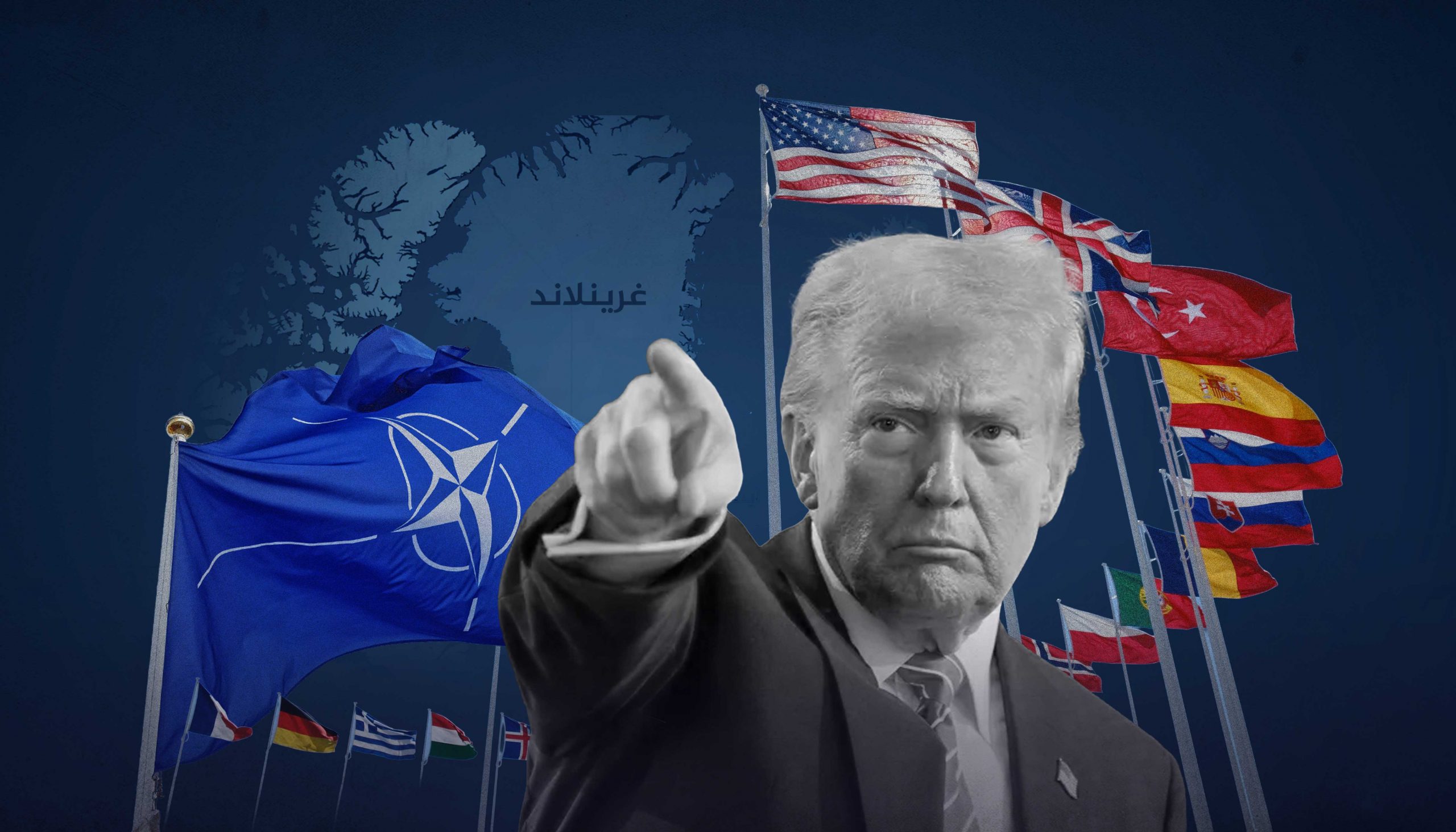Last June, French President Emmanuel Macron announced the coming end of the French Operation for the Sahel region “Barkhane”, arguing that “we cannot secure regions that are falling back into anomie because some states refuse to take their responsibilities”.[1] The news stirred intense speculation in West Africa on the implications of a French withdrawal, in particular regarding the risk of a security vacuum it could engender at a time when terrorist organizations in the area are gaining ground.
A month later, Macron carefully detailed his plan during a press conference following a G5 Sahel summit: Operation Barkhane will end, but French forces will not completely leave the Sahel. Instead, they will refocus their efforts on two primary missions – counterterrorism initiatives and training support to local armed forces. Throughout that process, several military bases in Mali would be closed and French troops currently numbering 5,000 men would be reduced to 2,500 by the end of 2021.[2]
As a result, the region will enter a delicate transition in the second semester of 2021. France has been a central security provider for the area since its 2013 intervention to rescue the government in Mali against an offensive from Jihadi insurgents. In the aftermath of the war, French forces moved from a warfighting posture to a stabilizing mission. They supported the efforts of its five local partners (Mali, Burkina Faso, Niger, Chad and Mauritania) to team up against the Islamist threat by forming the G5 Sahel organization in 2014.
But the French presence increasingly fueled discontent. In West Africa, local civil society and politicians grew suspicious of what they perceived to be France’s neo-colonial enterprise. Meanwhile, in France itself, public opinion struggled to understand the need for such a prolonged military engagement. Specifically, each instance of a French soldier getting killed in the Sahel (51 since 2013) triggered a debate in Paris on the purpose of the operation.[3] Against that backdrop, this paper explores the implications of the revised French military posture in the Sahel. First, it analyzes the causes that led the French government to change its strategy, and then goes on to discuss the consequences of the ongoing force reduction as well as possible consequences that could challenge regional stability during the ongoing transitional phase.
The causes of French gradual withdrawal
Operation Barkhane, which was launched in August 2014, directly followed Operation Serval, initiated a year previously to curb the offensive of Jihadi movements in Mali. With more than 5,000 soldiers as of August 2021, Barkhane represents the biggest military operation for France – and arguably the most ambitious non-US western intervention today.
Given the porous nature of borders in West Africa, terrorist organizations have been able to easily move from one country to another. Therefore, the new French operation was meant to cover not only Mali but the Sahelian band including the five aforementioned countries. As of August 2021, half of the French forces (2,500) are stationed in Mali while Chad hosts 1,500, Niger 600 and Burkina Faso 400.[4]
The geographical scope of Barkhane – a battlefield as big as the European continent – had two major implications for French armed forces. First, it represented a tremendous logistical challenge regarding the coordination between men and equipment scattered around five countries and operating in a natural environment – the desert – that can prove strenuous for soldiers. Second, Barkhane also involved a diplomatic component because of the strong emphasis put on cooperation with the local militaries as well as with the various multilateral actors: the EU Training Mission to Mali and the UN Mission to Mali, the Minusma). In the end, Barkhane had two objectives: in the short term, to extend the fight against jihadi organizations that had initially led France to intervene in Mali in 2013; and, in the longer term, to enable West African armed forces to provide security on their own.
The operation was also to be closely connected to the creation, in February 2014, of the G5 Sahel. If the mandate of the new regional entity included the promotion of economic development and good governance in the area, its security purpose took priority. In particular, the creation in 2017 of a joint force manned with 5,000 men from the five local militaries and headquartered in Bamako represents its biggest achievement.
Despite this framework, Operation Barkhane quickly faced issues which eroded the political support that had permitted its deployment. After the initial success of the French intervention in Mali in 2013, jihadi organizations swiftly migrated southward and focused their attacks on the so-called three-border area, a region where the territories of Mali, Burkina Faso and Niger intersect and where cooperation among local forces has always proved challenging. The frequency and intensity of jihadi offensives increased and soon Burkina Faso, a previously stable country, faced a wave of terrorist attacks that challenged the ability of its institutions to resist. As a result, the initial support in the Sahel for French intervention diminished, with local populations increasingly frustrated and suspicious over the perceived “hidden” agenda of Paris.
The worsening of the Sahel security environment also occurred at a time of political change in Paris. When Emmanuel Macron was elected President of France in May 2017 as the first French head of state with no military experience, he had primarily campaigned on domestic economic reforms and did not demonstrate a personal interest for military interventions in general and for Barkhane in particular.
But the new French leader soon faced a delicate conundrum: taking ownership of an operation whose mandate was increasingly challenged, both in Africa and in France. Insisting on turning the page of the “Francafrique” – an expression designating the controversial ties of post-colonial France with authoritarian regimes in Afrique[5] – Macron quickly proved eager to redefine the scope of Barkhane and more broadly French policy towards the continent. However, this desire to change the strategy behind Barkhane soon ran into hard realities.
The revision of French strategy in the Sahel
By late 2019, two years into Emmanuel Macron’s presidency, French and African frustrations over the security developments in the Sahel were reaching a peak. Subsequently, the French government decided to convene a summit with local partners in the southwestern city of Pau in January 2020. President Macron used the event to remind the G5 Sahel countries of their responsibilities in the fight against terrorist organizations. He also called on them to cease the anti-French rhetoric gaining traction in their capitals.
The summit eventually led to a 600-men increase of the French military footprint to build a total force deployed that reached the symbolical threshold of 5,000. The surge was a surprise given the previous skepticism President Macron had shown for Operation Barkhane. The justification was that the increase would stem the tide of terrorist attacks in the three-border area and restore the momentum for French and African partners in their stabilization efforts. But in retrospect, the increase evidenced the contradictions at the heart of Barkhane: on the one hand, the worsening security situation demanded a more robust military presence that only the French were able and willing to provide; on the other hand, however, the surge also further entangled France within local crises without addressing the core issues.
Unfortunately, the military surge did not achieve the desired results. Throughout 2020, terrorist attacks continued unabated in the three-border area, with the region becoming the epicenter of global Islamist terrorism. In early June 2021, the village of Solhan in northern Burkina Faso witnessed the most horrific massacre in the country’s recent history, with at least 160 people killed by jihadi fighters affiliated with al Qaeda and the Islamic State.[6] In addition, more than 420 civilians have been killed in Niger’s region bordering Mali in a series of lethal attacks since the beginning of January 2021.[7]
The surge of 2020 was also meant to pave the way for greater involvement of local armed forces, but Paris did not foresee the political instability that affected several Sahel countries this past year. In Chad, President Idriss Deby Itno was killed in April 2021 shortly after his reelection during clashes with rebels in the north of the country. Since taking power in 1990, Deby had been among the closest partners of France in Africa and described in the official French communiques as a “brave friend” and an “essential ally in the fight against terrorism” following his death.[8] He was immediately replaced by one of his sons, Mahamat Idriss Déby Itno, who announced future elections within 18 months, though the willingness of the Chadian military establishment to relinquish power to a civilian government remains doubtful.
The situation in Mali is even more worrisome. In less than a year, Mali experienced two coups led by a military junta that first ousted the elected president Ibrahim Boubacar Keita in August 2020 before blocking the transitional government of acting President Bah N’Daw and his prime minister Moctar Ouane in May this year. Amid these crises, the Malian coups eventually triggered the decision of the Elysée Palace in paris to put an end to Barkhane. After a temporary suspension of the military cooperation activities with the Malian armed forces, France announced in June the gradual drawdown of Barkhane as a whole.
The nature of French engagement after Barkhane has still to be clarified. Officially, the fundamental objectives will remain unchanged: the fight against terrorist organizations conducted by the Task Force “Sabre” and the support to local armed forces provided by the Task Force “Takuba”. But if the purpose of the new French mission stays the same, its resources have been clearly reduced. By the end of 2021, the French military should be primarily deployed around the three-border area after being withdrawn from northern Sahel area where the initial counter-terrorism operations began back in 2013.
In practice, this shift will mean the closure of several major French bases in Mali such as Kidal, Tessalit and Timbuktu, though bases in Gao and Menaka surrounding the Liptako region should remain open. Meanwhile French forces will refocus their resources on Niger with the general command of the operation being moved from N’Djamena to Niamey. The French government has been reluctant to share details on troop numbers, but, given the fact that the bases scheduled to close in Mali were largely manned with ground forces, it is fair to assume that the reduction of resources will primarily affect the army. This means a change in terms of force structure: by 2022, France will rely primarily on air assets (fighter aircrafts and UAVs) and smaller military units such as special operation forces assigned to counterterrorism missions.
Future implications
The reconfiguration of French military posture in the Sahel may assuage the pressure felt in Paris and Western African capitals regarding the imperative of avoiding the endless presence of the former colonial power in the area. However, the revision in priorities also brings about critical questions on the way regional stability may be guaranteed in the future.
First, the gradual reduction of French troops implies a stronger military commitment of Sahelian forces, either at the national level or the regional level through the strengthening of the G5 Joint Force. Military effectiveness in West Africa, as elsewhere, depends on stable relations between the military and the government: Chadian armed forces remain the most battle-hardened in the region, though the country’s political objectives remain unclear after the death of Idriss Deby Itno. Likewise, the Malian military coups have politicized the country’s officer’s corps and distracted them from counterterrorism missions.
In Burkina Faso, a country that experience repeated military coups until 2014, the civilian government has kept its armed forces in check. As a result, the Burkinabe military suffers from operational limitations. Arguably, the situation is more stable in Mauritania, where the elected president, Mohamed Ould El-Ghazaouani, is also the former Chief of Staff of the National Armed Forces. Overall, the fragility of military-civilian relations in the region also explains the decision of France to refocus its efforts in Niger: the country recently experienced a successful transition with the presidential election of Mohamed Bazoum to replace Mahamadou Issoufou.
The ability of Sahel partners to step up their counter-terrorism efforts will also be determined by the contribution of the international community. Since 2014, France has urged its Western allies to contribute to stabilizing the Sahel. European countries such as Denmark, Germany, the UK, Italy, Spain and Estonia have contributed financially or militarily. The US Department of Defense has also supported the French operation through intelligence sharing and air support. However, as in Paris, the interest of policy elites in Western capitals in the Sahel is diminishing as the security future looks bleak. In Washington, the former administration of President Donald J. Trump vowed to reduce the size of its African Command and the team of his successor Joe Biden did not indicate any willingness to reverse this plan.
The repeated coups in Mali have also led Western funders to question the effectiveness of their training programs. In recent years, the EU and the UN have both provided security support to Mali, respectively with the EU Training Mission – Mali and the MINUSMA (United Nations Multidimensional Integrated Stabilization Mission in Mali). In March 2020, the EU confirmed its desire to extend its training mission within Mali, Burkina Faso and Niger. Meanwhile, eleven European nations are joining or planning to join the French-led Task Force Takuba. To this end, Denmark announced that it would send about 100 soldiers, while Romania pledged 45 men.[9]
Nevertheless, this push towards “Europeanization” of external training missions remains fragile with the result that the future of multilateral initiatives remain uncertain. Both the Covid-19 pandemic and the local political crises have left EU institutions worried about the feasibility of the plan. Furthermore, some Europeans capitals are cautious about France’s requests for assistance given their perception that Paris is seeking to leverage EU resources to support specific French political interests in the Sahel.
These uncertainties surrounding the international commitment to the Sahel also coincide with a worrisome evolution of the terrorist landscape in West Africa. As pointed out by President Macron in his speech in July this year, the closure of French bases in northern Mali is less a signal towards a French withdrawal than an adaptation to the new terrorist threat. Since the launching of Barkhane in 2014, violent groups have spread south to the three-border area and beyond. There are growing concerns about a further extension of the battlefield to the Gulf of Guinea, where northeastern Ivory Coast has seen attacks by Islamists crossing the border from Burkina Faso.[10] Likewise, eastwards in the Lake Chad region, Nigeria and Cameroon are concerned about the rapid growth of Islamic State for the West African Province.[11]
Furthermore, the terrorism phenomenon in West Africa exacerbates diverging views between France and its partners on the best response to adopt. France approaches these threats primarily through a military lens, considering these organizations as existential enemies. In recent years, French forces conducted counter-terrorism missions that targeted the leadership of insurgent groups: Abu Abdelrahman al Maghrebi, the number two of Jama’at Nasr al Islam wal Muslimin (JNIM or the Support Group for Islam and Muslims), was killed near Timbuktu in October 2019; Abdelmalek Droukdal, the self-proclaimed emir of Al Qaeda in the Islamic Maghreb, was assassinated on 3 June 2020; and Bah Ag Moussa, military commander of the JNIM, was killed in November 2020.
But in the Sahel, local politicians have been more ambivalent about military efforts to suppress these groups, and the governments in Mali and Burkina Faso have announced their willingness to enter negotiations with the insurgents. On the one hand, such reconciliation efforts might allow for military de-escalation and for a better dialogue among impoverished communities. On the other hand, however, direct talks with violent armed groups may legitimize their actions and undermine the on-going efforts from security forces.
Conclusion
Given this context, the French government needs to tread carefully: while it cannot disengage abruptly, Paris also cannot unilaterally seek a resolution of the conflict without local involvement. Macron firmly announced the end of Barkhane while insisting on maintaining a military presence that would support the ongoing stabilization efforts. While the French President confirmed the closure of bases in Mali, he stated that the one in Niamey would be “heavily beefed up” (fortement musclée) to guarantee a “reassurance component”. In other words, France would maintain a specific threshold for its military footprint to prevent the erosion of regional stability. At the operational level, this threshold is not yet specified in terms of personnel and capacities, but the shift in the military stance is likely to give more emphasis to the air component (planes and UAVs) as well as the special operations forces units.
At the political level, this idea of a “reassurance component” works primarily to maintain confidence between France and its Sahel partners through the uncertain transitional phase that the region is entering. But the French government cautiously refrained from detailing the implications for its troops. All in all, the revision may look like an uncertain gamble: by 2022, it might put the Sahel issue on the back burner of French politics while President Macron runs for his re-election in May 2022. However, on the battlefield, the reduced French presence could also precipitate the expansion of terrorist groups eager to gain new ground in the region.
References
[1] Jean-Loup Samaan, “How France’s operation in the Sahel unravelled”, The National, 15 June 2021. https://www.thenationalnews.com/opinion/comment/how-france-s-operation-in-the-sahel-unravelled-1.1241611
[2] French Presidency, “Propos liminaires du Président de la République à l’occasion de la conférence de presse conjointe à l’issue du Sommet du G5 Sahel”, 9 July 2021. https://www.elysee.fr/emmanuel-macron/2021/07/09/conference-de-presse-a-lissue-du-sommet-du-g5-sahel
[3] “Soldats tués au Mali : la France peut-elle se désengager du Sahel?”, France Info, 4 January 2021. https://www.francetvinfo.fr/economie/emploi/metiers/armee-et-securite/soldats-tues-au-mali-la-france-peut-elle-se-desengager-du-sahel_4243061.html
[4] International Institute for Strategic Studies, The Military Balance 2021, London: Routledge, p.105.
[5] Pascal Airault, Jean-Pierre Bat, Françafrique: Opérations secrètes et affaires d’Etat, Paris: Tallandier, 2019.
[6] “Burkina Faso : après le massacre de Solhan, le bilan relevé à 160 morts”, Le Monde, 6 June 2021. https://www.lemonde.fr/afrique/article/2021/06/06/burkina-faso-apres-le-massacre-de-solhan-le-bilan-releve-a-160-morts_6083098_3212.html
[7] Human Rights Watch, “Niger: Surging Atrocities by Armed Islamist Groups”, 11 August 2021. https://www.hrw.org/news/2021/08/11/niger-surging-atrocities-armed-islamist-groups
[8] “Tchad : ‘Avec la mort d’Idriss Déby, la France perd un grand soldat et un ami courageux'”, La Tribune, 20 April 2021. https://www.latribune.fr/economie/international/le-president-tchadien-idriss-deby-tue-par-des-insurges-au-lendemain-de-sa-victoire-a-la-presidentielle-882812.html
[9] French Ministry of Armed Forces, “La Roumanie rejoint la Task Force Takuba au Sahel”, Official Statement, 18 June 2021. https://www.defense.gouv.fr/actualites/articles/la-roumanie-rejoint-la-task-force-takuba-au-sahel
[10] Caleb Weiss, “Ivory Coast witnesses surge in jihadist activity”, The Long War Journal, 16 June 2021. https://www.longwarjournal.org/archives/2021/06/analysis-ivory-coast-witnesses-surge-in-jihadist-activity.php
[11] Jean-Loup Samaan, “What the Boko Haram leader’s death means for the war against terror”, The National, 4 August 2021. https://www.thenationalnews.com/opinion/comment/2021/08/04/what-the-boko-haram-leaders-death-means-for-the-war-against-terror/








